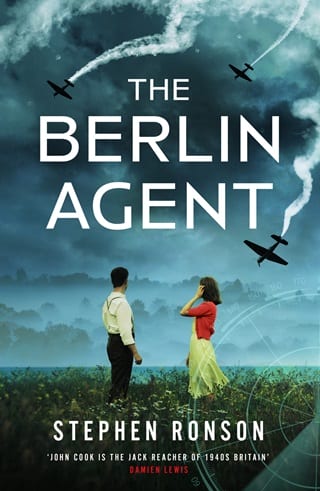47
We hurried across the moonlit fields, through the newly widened gap in the hawthorn hedge. The far meadow was half ploughed, and our ancient Fordson tractor was labouring across the mud. It stalled, and a distinct shout carried across the field.
‘Fucking hell!’
It was Bill Taylor. Bill and the Fordson had a hate-hate relationship. Bill, precise and thoughtful in all walks of life, didn’t get on with the vagaries of the machine. He’d been on at me to replace it, but it would have taken a loan so expensive it would put the whole operation at risk and I’d held off.
We picked our way across the ploughed section of the field.
‘Having fun?’ I asked.
‘No, I’m bloody well not,’ Bill Taylor replied.
‘I was talking to the Fordson,’ I said.
The Pole joined us. He’d been walking along behind the plough, monitoring its progress.
‘No good,’ Milosz said. ‘Plough bit keeps riding up. It needs eighteen inches down to make the drainage channels, but it rides up, first chance it gets.’
‘Tried weighting it down?’ I asked.
‘Then it bogs down.’
‘How about a man riding it? Like you did with the children?’
‘Could work,’ Milosz said. ‘Let’s try.’
‘We’ll try again in the morning,’ Bill said, ‘but we’re going to have to have a serious chat about getting that tracked machine we talked about. It’ll do much better in the mud.’
‘Let’s not waste time discussing it any more,’ I said. ‘Call Allthorp first thing. Put in the order, if they’ll let us have it.’
Bill cut the engine and climbed down from the tractor. The way he held his back, it was clear he’d been at it for a long time. I’d been letting him take the lion’s share of the work, but I’d been taking advantage of him. Bill wasn’t the kind of man to tell you he needed help. I’d forgotten that my role as his employer was to step in when he was doing too much.
‘Call it a day,’ I said. ‘The field’ll be here tomorrow. We can do it together.’
I left Bill checking the tractor before he finished for the night. Milosz followed me, as I’d hoped he would.
‘Anything to worry about?’ I asked, keeping my voice low.
‘Nothing,’ Milosz said. ‘No visitors. I walked perimeter during lunch. No signs of anyone.’
*
‘A hundred and sixty-two yards,’ Miriam shouted. She’d paced the length of the fence as best she could, helped by her cane, and now she hobbled back to us, stopping to write her findings in a pocket notebook. When she reached us she showed us her work – she’d sketched the construction of the fence, carefully noting the number of strands, the method of attachment to the rotting wooden posts, and the amount of rust on the wire.
‘It’s what I thought,’ she said. ‘Perfectly set up to receive eight hundred to nine hundred kilohertz. Your fence should actually be a more sensitive receiver than ours. It’s longer, with more strands of wire, and the perfect amount of corrosion. We’d expect you to get a louder signal. But you said it was quieter, coming and going, that means the transmitter’s closer to our fence than yours. I’d say that puts the transmitter within two or three miles of our fence.’
‘Is there any way to triangulate?’ Margaret asked.
‘We’d need at least two more locations,’ Miriam said. ‘But we can’t very well put an ad in the paper asking to talk to people who’ve been hearing German radio transmissions. It would cause panic.’
‘We could set up shop at likely places,’ Margaret said. ‘If you’re saying we want a three-row barbed wire fence of more than a hundred yards, that helps us narrow it down. It’s a matter of doing the legwork.’
‘That could take weeks,’ Miriam said, shaking her head. ‘I don’t think we’ve got that long. I think we’ve got days, if that.’
We all looked south, towards the coast.
 Fullepub
Fullepub 



